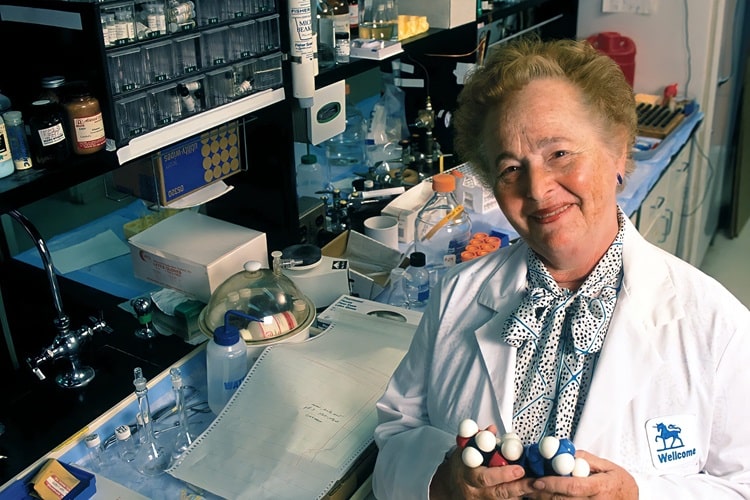Unmasking a Legend: The Story of Gertrude B. Elion

Gertrude B. Elion was an American biochemist and pharmacologist. He was awarded the Nobel Prize in Physiology or Medicine in 1988.
Life and Career
Gertrude B. Elion was born on January 23, 1918, in New York City.
Gertrude Elion earned her bachelor’s degree in chemistry from Hunter College in 1937. Despite facing financial constraints and the challenges of being a woman in the male-dominated scientific field, she went on to pursue a master’s degree in chemistry from New York University in 1941.
Elion’s early career was influenced by the outbreak of World War II, leading her to work on projects related to the development of drugs for the treatment of specific diseases. In 1944, she began working at Johnson & Johnson, where she focused on developing drugs to treat bacterial infections.
One of the most significant phases of Elion’s career began in 1944 when she joined Burroughs Wellcome (later GlaxoSmithKline) in Tuckahoe, New York. At Burroughs Wellcome, Elion collaborated with George H. Hitchings, and together they formed a highly successful research partnership that lasted for several decades.
Elion and Hitchings pioneered the concept of rational drug design, a revolutionary approach that involved designing drugs based on a thorough understanding of the biochemical and physiological differences between normal cells and diseased cells.
Their work led to the development of several drugs, including 6-mercaptopurine and azathioprine, which revolutionized the treatment of leukemia and organ transplantation, respectively. They also contributed to the development of drugs for the treatment of malaria, gout, and herpes.
She died on 21 February 1999, in Chapel Hill, North Carolina, United States.
Award and Legacy
Gertrude B. Elion, along with George H. Hitchings and Sir James Black, was awarded the Nobel Prize in Physiology or Medicine in 1988. They received the prize for their groundbreaking work on drug development, particularly the development of drugs like 6-mercaptopurine and azathioprine.
In 1991, Elion received the National Medal of Science, one of the highest honors for scientific achievement in the United States. This award recognized her exceptional contributions to the field of medicine and pharmacology.
Gertrude B. Elion was the first woman to be inducted into the National Inventors Hall of Fame in 1991. This honor acknowledged her innovative work in drug development and her impact on the field of pharmacology.
Gertrude B. Elion’s legacy is characterized by her numerous accolades, including the Nobel Prize, and her enduring impact on the field of medicine. Her contributions to drug development and her pioneering spirit continue to inspire scientists and researchers, ensuring that her legacy persists in the ongoing quest for innovative medical solutions.
Observer Voice is the one stop site for National, International news, Sports, Editor’s Choice, Art/culture contents, Quotes and much more. We also cover historical contents. Historical contents includes World History, Indian History, and what happened today. The website also covers Entertainment across the India and World.
Follow Us on Twitter, Instagram, Facebook, & LinkedIn

